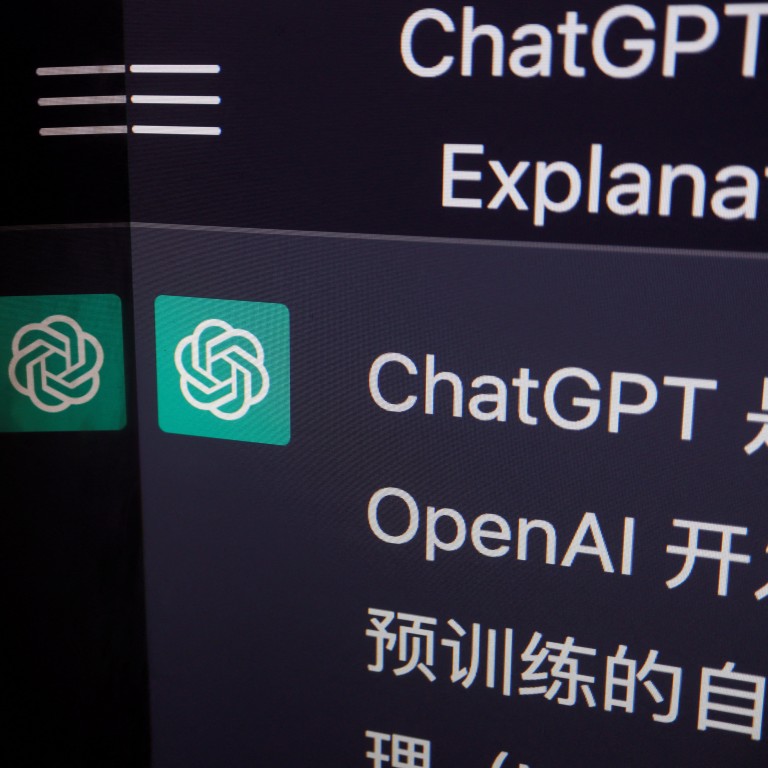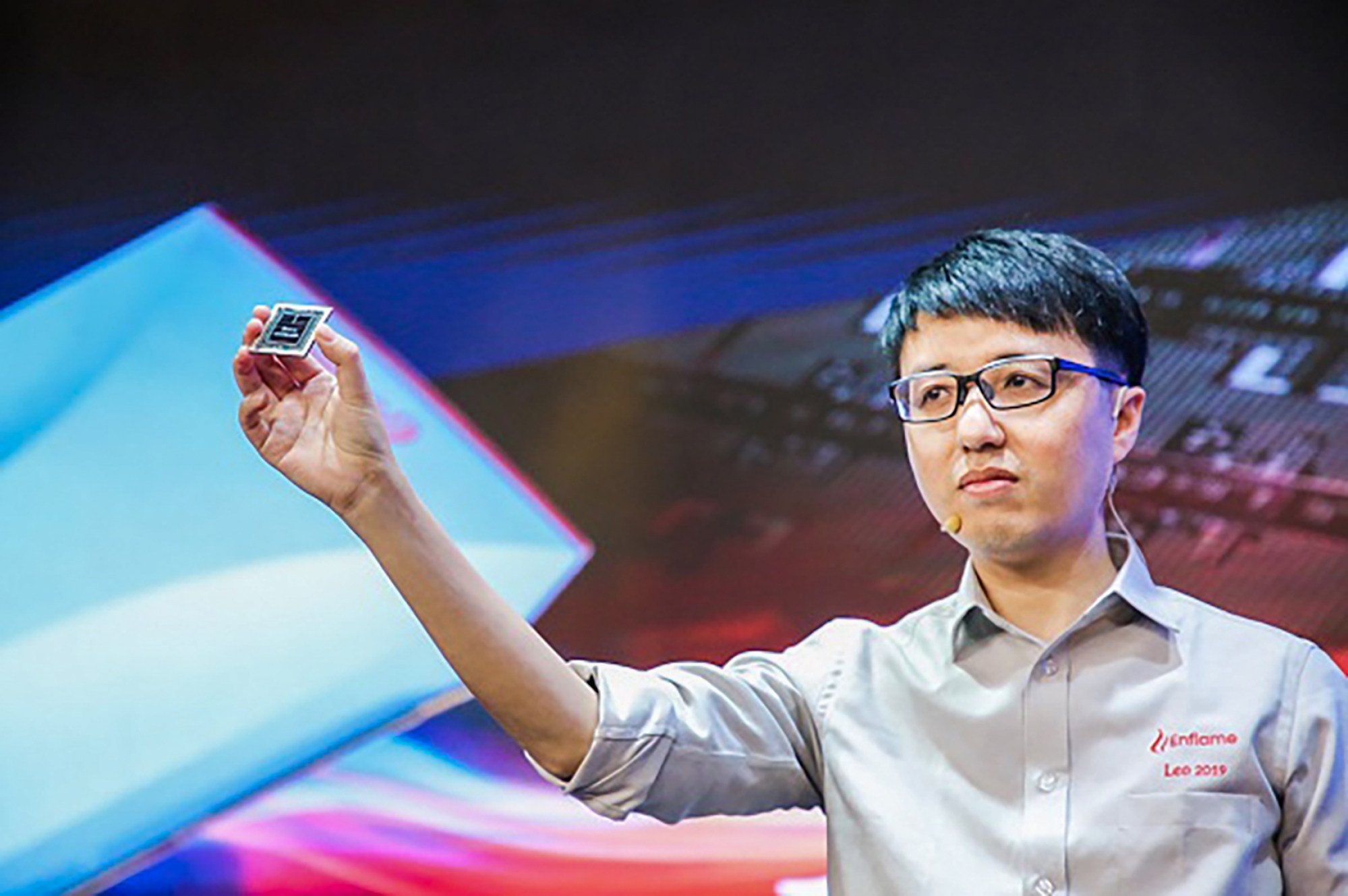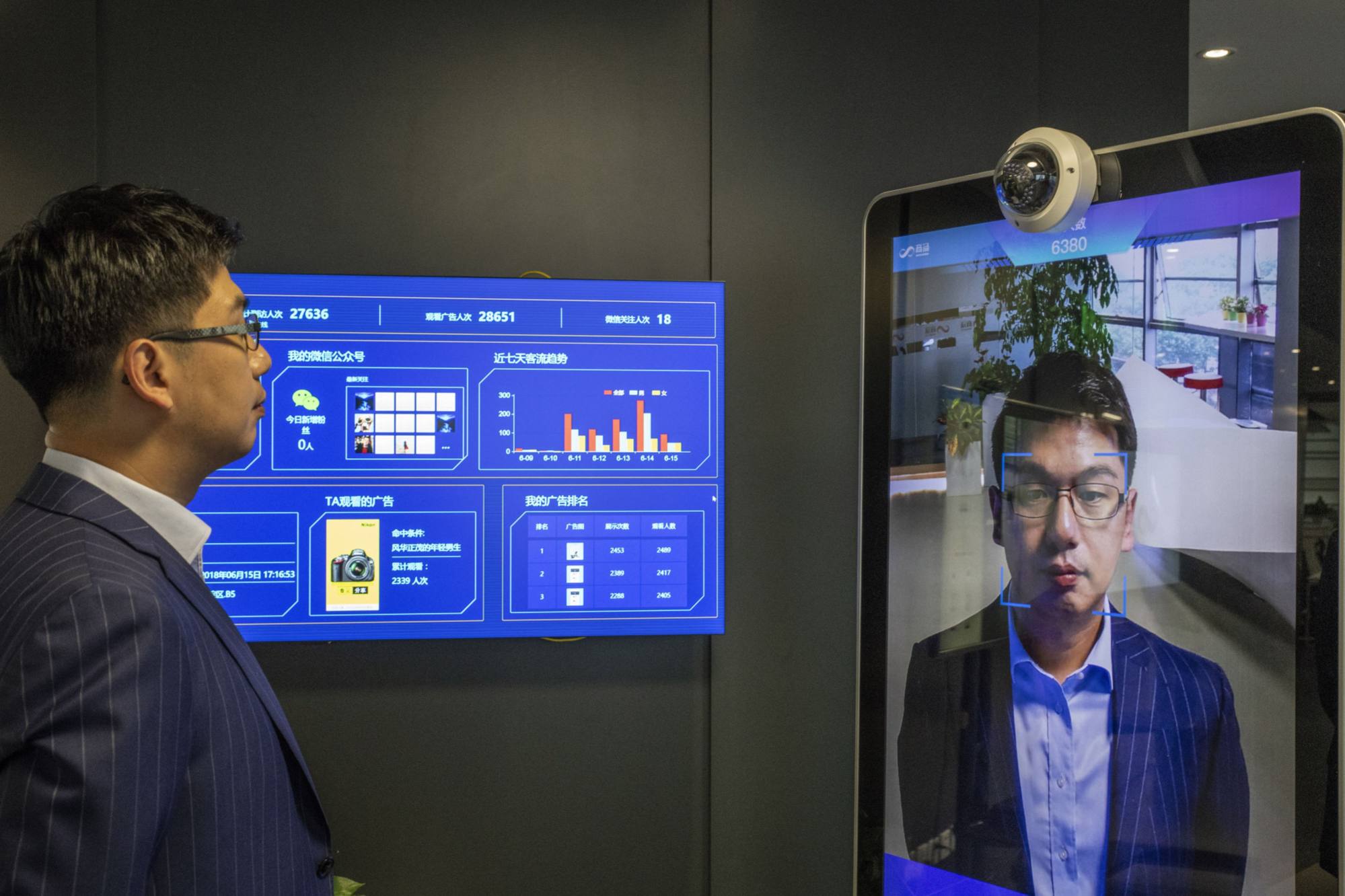
China’s ChatGPT ambitions must overcome US trade restrictions on advanced AI chips, experts say
- US restrictions on the export of advanced artificial intelligence chips to China could hamper domestic efforts to build a ChatGPT rival
- Despite technological challenges, many Chinese companies expressed optimism that ChatGPT would open new business opportunities
Since its launch in November, San Francisco-based start-up OpenAI’s chatbot has become a global phenomenon, impressing internet users around the world with its ability to carry out humanlike conversations.
“If China wants to create its own ChatGPT, we need tens of thousands of A100 chips to provide the necessary computing power,” said Zheng Weimin, a Tsinghua University professor affiliated with the Chinese Academy of Engineering, referring to the high-performance graphic processors made by California-based chip firm Nvidia.
China has yet to be able to make chips and software that can support at least “50 to 70 per cent of the computing capacity [needed to run ChatGPT]”, Yang said.
Zhang Yaling, founder and chief operating officer of Shanghai-based AI chip start-up Enflame Technology, said China is still highly reliant on Nvidia’s AI chip software ecosystem because it has yet to form its own self-sufficient, open-source system.
“We hope that with the vigorous promotion of the government, the concerted efforts of the whole industry, and continuous investment, we can build up an ecosystem suitable for our own AI chips,” said Zhang, adding that he hopes China can create a ChatGPT rival in the next three to five years.

Despite the technological challenges, many Chinese companies expressed optimism that ChatGPT would bring about new opportunities in China.
“This new round of revolution will create opportunities for everyone, from those who develop the next big models to those who create applications based on them,” Li said.
SenseTime co-founder and CEO Xu Li said the advent of advanced AI is “akin to the industrial revolution”. With its newly launched Sensecore AI cloud platform, the company aims to provide low-cost, efficient AI infrastructure for companies developing ChatGPT-like products, Xu said.

While ChatGPT is not available in China, it has become a hot topic of discussion among Chinese internet users, particularly after tech giants such as Baidu and Alibaba Group Holding, owner of the South China Morning Post, announced their intentions to launch similar services.
Investors are gearing up for a “gold rush” in ChatGPT-like technologies that will be “filled with opportunities across the entire industry chain, from chip computing and AI training models to data collection and processing and AI talent”, said Zhai Jia, managing director at venture capital firm Sequoia China.
The value of generative AI is projected to reach US$60 billion by 2025, accounting for 30 per cent of the global AI market, as the technology finds more applications outside ChatGPT, such as in drug discovery, according to Jeff Walters, partner and general manager of Greater China at Boston Consulting Group.
In China, however, mainstream training models are still dominated by foreign platforms, including PyTorch and TensorFlow, and it remains a challenge to attract skilled workers to carry out AI training in the country, according to Sequoia’s Zhai.


